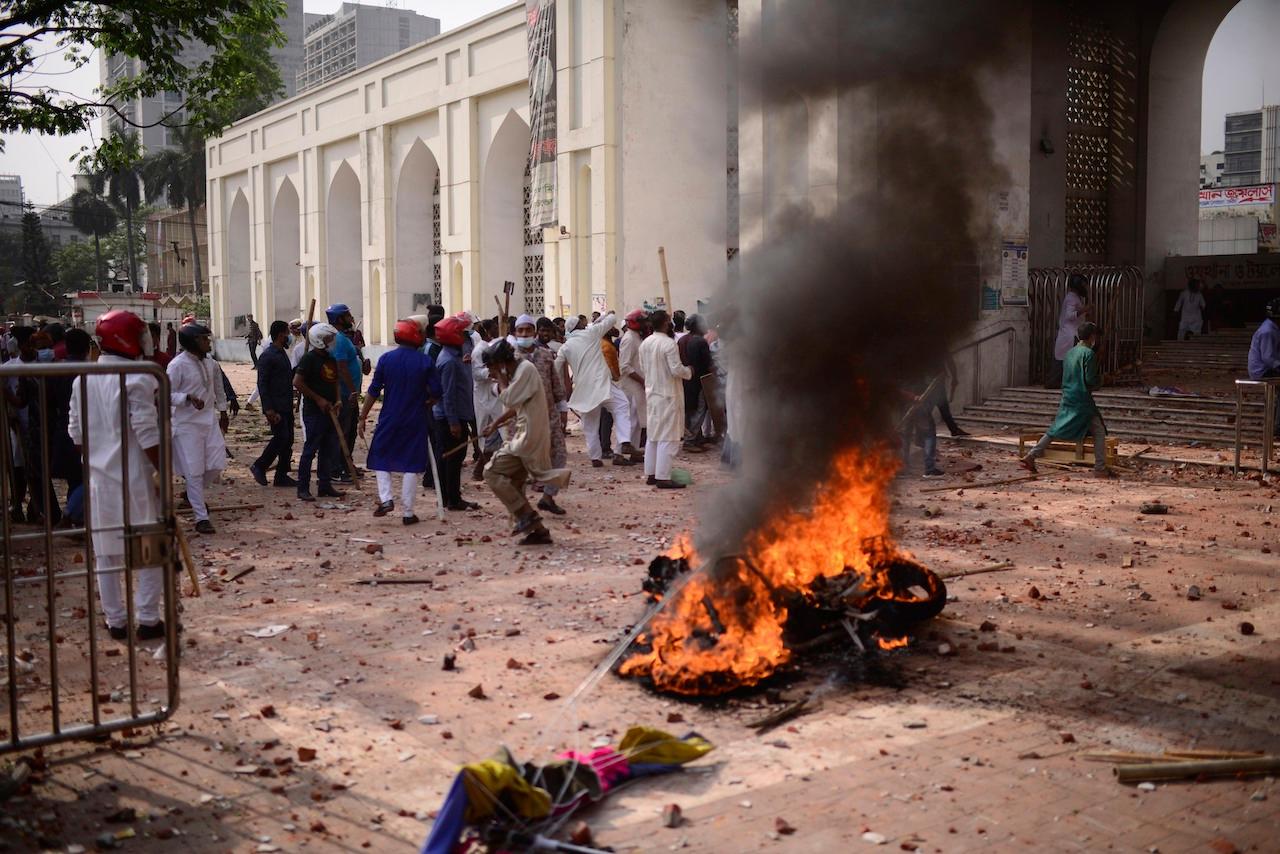Bangladesh arrests Islamist leader after violent protests over Modi visit
Modi’s two-day visit was overshadowed by violence, and at least 17 supporters of Hefazat-e-Islam were killed in clashes with police.
Just In
Police in Bangladesh on Sunday arrested an influential leader of an Islamist group that led violent protests against last month’s visit by India’s prime minister to the Muslim-majority nation, officials said.
Mamunul Haque of the group Hefazat-e-Islam faces charges of instigating violence, but police did not provide details on specific cases or whether the charges stem from Narendra Modi’s visit, the AP is reporting.
A senior Dhaka Metropolitan Police official said in a briefing that Haque was arrested at a madrassa, or Islamic school, in Dhaka’s Mohammadpur area.
Haque, 47, is a leading figure in the Hefazat-e-Islam group, literally “protector of Islam”, which has a strong network of Islamic schools across Bangladesh.
The group says it is not a political party, but its leaders in their sermons regularly talk about the country’s politics, advocating an Islamic revolution in the nation of 160 million people.
Its leaders often challenge the basics of the country’s constitution and its legal system, which is based on British law.
The group criticised Bangladesh’s Prime Minister Sheikh Hasina for inviting Modi to join a March 26 celebration of the country’s 50th anniversary of independence and threatened to shed blood in the streets to undermine the visit.
Critics accuse Modi’s Hindu-nationalist party of discriminating against minorities in India, particularly Muslims.
Modi’s two-day visit was overshadowed by the violence, and at least 17 supporters of Hefazat-e-Islam were killed in separate clashes with police as they attacked a police station and other government buildings, and blocked highways elsewhere in the country.
In Dhaka, they clashed with police outside the country’s main Baitul Mokarram Mosque during the visit.
In a speech to Bangladesh’s parliament earlier this month, the prime minister warned the group and its leaders that they would face consequences if they continued to resort to violence.
Haque and his associates led a recent campaign against a sculpture of independence leader Sheikh Mujibur Rahman, Hasina’s father, saying sculptures are un-Islamic. On that occasion, the government backed off.
Hefazat-e-Islam also wants Hasina’s government to enact blasphemy laws, under which anyone convicted of criticising Islam’s prophet would face the death penalty.
Headquartered in Chittagong, Hefazat is a platform of the Sunni clerics of the country’s vast Quami madrassa network and their students.
The Economist reported in 2017 that Hefazat madrassas were financed by Salafi-Wahabi Islamists in Saudi Arabia.
Subscribe to our newsletter
To be updated with all the latest news and analyses daily.
Most Read
No articles found.
